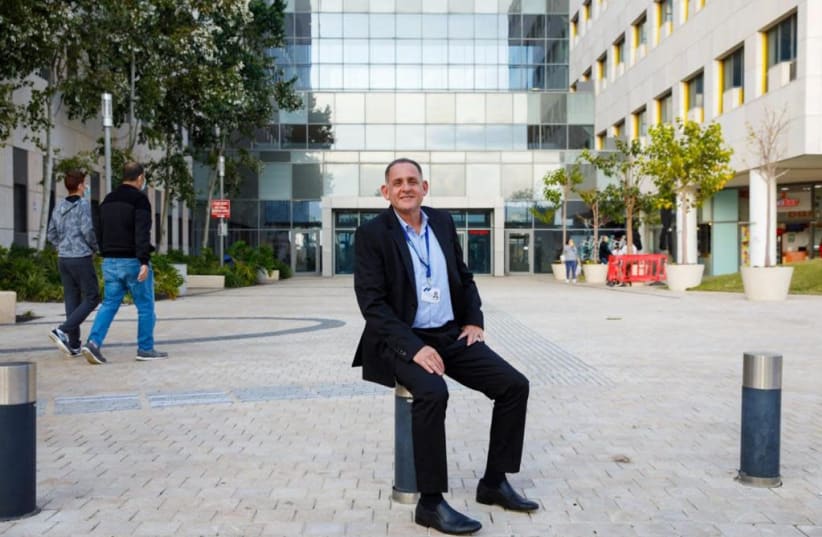Riots pitting Israeli Jews and Arabs against each other are even more concerning than rockets from Gaza, according to Dr. Erez Barenboim, general-director of the Samson Assuta Ashdod Hospital.
Some Arab workers at the hospitals had to be escorted out of their villages by the police and were offered housing in the city until the situation calms down, he said.
“I am more concerned about the riots in the mixed towns than from the missiles coming from Gaza,” Barenboim told The Jerusalem Post. “Internal stability is crucial for the development and the security of Israel,” adding that “As a country, as a people, we can defend ourselves from rockets, but we need to be united.”
Located some 25 kms. from the Gaza border, Ashdod has been the target of multiple rocket barrages this past week.
Inaugurated in 2017, Assuta is mostly built as a secured structure. This characteristic has allowed the doctors to carry on most of their work as usual despite recurring alarms.
“Our main challenge has been the staff. Many of them live here in Ashdod, or even closer to Gaza. They are worried about their families and their children [and] some have been scared to come to work using public transportation,” Barenboim said. “We have found a solution to minimize their exposure by sending them special buses to pick them up.”
The ethnic tensions have also affected the work of the hospital.
“We are a microcosm with Jews, Arabs, Christians and Muslims working together. Last week we had a Muslim holiday and most shifts were covered by Jewish workers, and this week we have a Jewish holiday and Arab workers are doing the same thing,” the doctor said.
“Some of our Arab workers who live in villages in the North that have witnessed riots were afraid to come to work,” he said. “We organized buses to take them out of their villages escorted by the police and found them housing in Ashdod while the situation remains problematic.”
THE INTERNAL conflicts are especially worrisome after a year that, in spite of all the challenges brought forth by the coronavirus, had seen everyone in the country fight the pandemic united.
“We had a very good year, we all fought COVID-19 united and there was no real difference between Jews, Muslims, Christians and Druze. Everybody was together in this matter,” Barenboim said. “We even sent vaccines to Gaza and to the West Bank. I hope people remember that we have the same needs, if we want to have a future for our kids.”
The pandemic has put unprecedented pressure on medical staff all over the country.
“I think some people are experiencing some burnout. Many were looking forward to going on vacation, spending time with their family and so on. Instead, we are getting this,” Barenboim said.
The situation is also affecting the patients.
“We are seeing fewer patients than usual; only those who really need to be here come, including many pregnant women who come here to be in a secured structure while they are in labor,” the doctor said.
Despite the difficulties, the hospital and its personnel are facing the emergency with resilience and strength, and are ready for any scenario, he assured us.
“We are hoping for the best but are prepared for the worst,” he said.
“I am proud to be in my position in these days. In a way, I feel I am fulfilling my duty, similar to when I was an officer in the military,” he said.
Barenboim studied medicine as part of the IDF academic reserves program and held several command positions in health and in operations of the Air Force and the Medical Corps, before being discharged in 2015.
“I do expect that at the end of this round, Hamas will think again before they start shooting one more time,” he said. “We need to put an end to this pressure on the South. We need to find a solution, some kind of peace solution – but we cannot accept the fact that they keep on firing rockets at our houses.”
